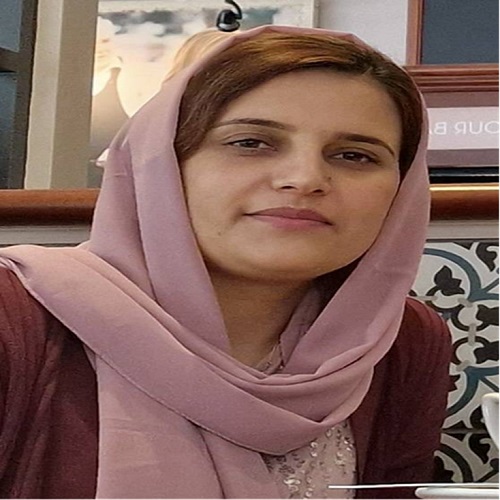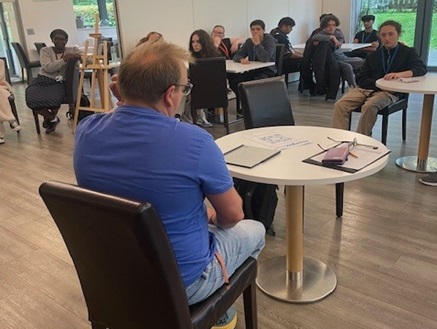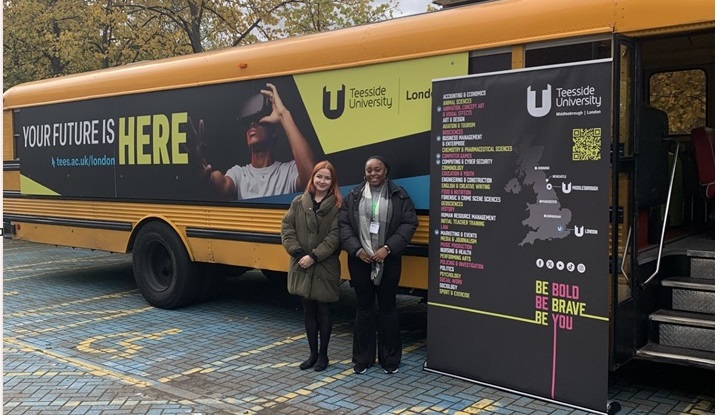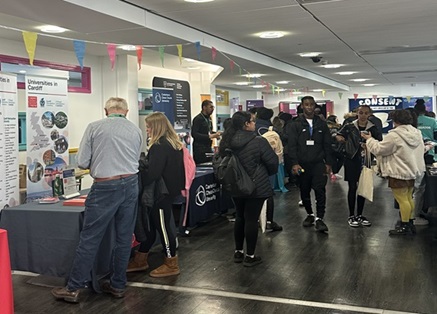Key Facts
- Starting
8 Sep 2025- Location
- Merton
- Start Date
- Sep 2025
- Level
- Level 3
- Code
- MHCX500TP

T Level - Education and Childcare
The T Level in Childcare will provide learners with the knowledge, skills and behaviours needed to progress into skilled employment or higher-level technical training or university level study in the Education and Childcare sector. This occupational specific qualification meets the Early Years Educator criteria and has been recognised and approved by the Department for Education. Holders of this qualification can be counted in EYFS staff:child ratios.
-
Entry Requirements
We will invite you to an Applicant Event where you will receive information, advice, and guidance about the course you have applied for. This will be an opportunity for you to gain valuable information about the course and give you the opportunity to ask any questions you may have.You will need to provide a copy of your last school report and / or a reference from an employer or relevant professional that includes information about your attendance. This is to ensure we can support you to be able to achieve well on the course. Applicants with 85% or below attendance will have been deemed not to have met this criteria. All applicants are given an opportunity to discuss any evidence-based mitigating circumstances that may have affected the reference / school report.
T Levels require a minimum of 5 x GCSEs at C/4 or above, including a grade 4 in Mathematics and English Language.
A DBS (police) disclosure is required for this course.
We are firmly committed to finding the right course for you to ensure you can flourish. Talk to us today if you have any concerns about the application process, we are here to help take you to the next level.
-
Course Content
Learners will experience both classroom-based and practical learning through industry placement. The classroom-based element of the course consists of two components: the 'Core' provides students with the knowledge that underpins the industry including safeguarding, supporting education, special educational needs and reflective practice. You will also learn the theories that inform how we work with parents and legislation and policies that impact practice in the early years sector. The second element of the course is the 'occupational specialism' for which you will develop skills on placement. This could include planning for individual needs, the early years curriculum, and how to complete purposeful observations of children. -
Progression Next Steps
Progress into skilled employment or higher-level technical training or university level study in the Education and Childcare sector, such as primary teacher training with QTS.. Learners can then progress into various job roles in the statutory, voluntary or private sectors such as:- Practitioner in day nurseries
- Practitioner in nursery schools
- Practitioner in reception classes in primary schools
- Pre-school worker
- Nanny
- Special needs assistant
There are lots of opportunities available to you to progress across the South Thames Colleges Group and into the world beyond education.
During your time with us you will have access to a dedicated team of careers and education advisors who will help you as you take the next steps towards achieving your goals.
-
Course Structure
The course is a two year programme. You will spend three days a week in college and two days each week in a practical workplace setting. This is likely to be a private day nursery or school nursery. Many of our students have even met their future employers whilst on placement. -
Assessment Details
Each T Level route contains the following components:- A Technical Qualification (the main, classroom-based element) *An Industry Placement running for a minimum of 315 hours (45 days) Any licence to practice for that specific occupation Enrichment and tutorial time





